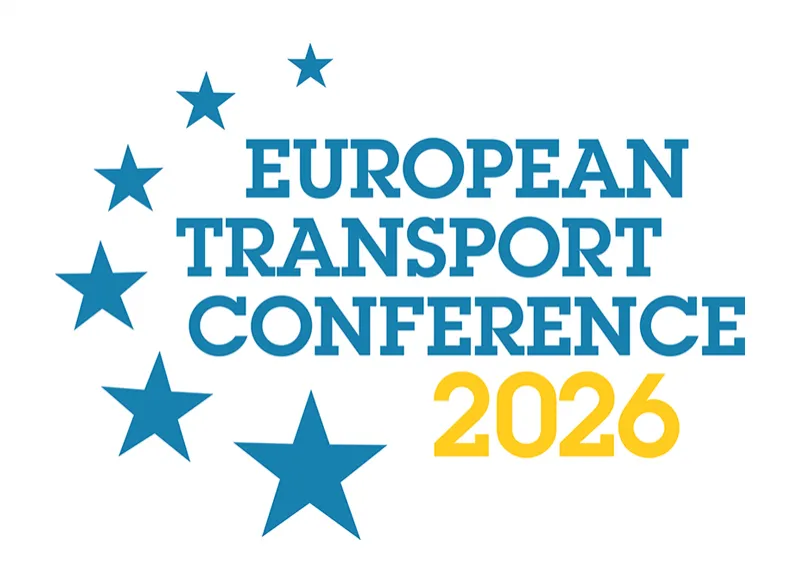-
Past ETC Papers

Browse, search and view papers from the past AET Conferences.
-
Members' Area

AET promotes networking and exchange of ideas, information and opportunities amongst members.
Conference Papers 2023
Milan, Italy
ETC Conference Papers 2023
The Smart Sustainable Districts framework to improve mobility in cities: opportunities, tools and barriers
Seminar
Day 1 (6 Sep 2023), Session 1, Sustainable Transport Planning 1, 10:30 - 12:30
Status
Accepted, documents submitted
Submitted by / Abstract owner
Valerio Mazzeschi
Authors
Alberto Colorni (Poliedra-Politecnico di Milano)
Pierluigi Coppola (Department of Mechanical Engineering-Politecnico di Milano)
Alessandro Luè (Poliedra-Politecnico di Milano)
Valerio Mazzeschi (Poliedra-Politecnico di Milano)
Valerio Paruscio (Poliedra-Politecnico di Milano)
Arianna Seghezzi (Department of Management, Economics and Industrial Engineering-Politecnico di Milano)
Jelena Stanković (Faculty of Economics-University of Nis)
Luca Studer (Department of Design-Politecnico di Milano)
Mara Tanelli (Department of Electronics, Information and Bioengineering-Politecnico di Milano)
Angela Tumino (Department of Management, Economics and Industrial Engineering-Politecnico di Milano)
Short abstract
This paper presents the four lines of action on mobility identified by Smart Sustainable District project and their applications in the city of Niš, analysing both opportunities and barriers.
Abstract
According to UN forecasts, 70% of the world's population will live in cities by 2050. In the latest years, old and new models of thinking about urban space have been advanced, such as the '15-minute city' theorised by Carlos Moreno, Smart Sustainable Districts, Transit Oriented Development.
In the paper, the authors present the project Smart Sustainable District and the application of some of its concepts in an extra-EU country through the Horizon Europe project UR-DATA. The Smart Sustainable District (SSD) project started in 2021 and involved more than one hundred of researchers at Politecnico di Milano (www.poliedra.polimi.it/en/ssd-smart-sustainable-districts/). The main outcome is represented by a White paper that describes principles, solutions, tools for the realisation of the SSD model in urban areas. Indeed, the White paper can represent a strategic and methodological support for urban transformations, to support public decision-makers and private operators.
The White paper considers several aspects of a SSD, from Energy to Environment, from Collaborative and active citizenship to Financial models. In the paper, the focus is on Mobility. Specifically, four lines of action are outlined as follows.
a) Integration between service and infrastructural networks, which aims to integrate local public transport services at different scales by promoting intermodality between sustainable forms of mobility and the reduction of private motorisation. In particular, it is appropriate to introduce policies that limit the use of cars for local travel by favouring instead the use of shared vehicles, and by realising modal interchange nodes of local public transport. To do this, it is necessary to work on two complementary levels. The first concerns the introduction of integrated (public-private) planning, while the other concerns the design of interchanges nodes that can encourage active mobility.
b) Last mile logistics, i.e. the development and implementation of innovative urban logistics solutions. In recent years there has been a change in consumer purchasing habits leading to the creation of new problems (e.g. small parcels) that require innovative solutions. In this case, the applicable solutions refer to two types. The first is the use of special structures that optimise parcel storage (parcel locker, micro-hub). The second, on the other hand, refers to the use of smaller, low-emission means of transport such as cargo-bike, electric vehicles and drones.
c) Mobility management actions promote and encourage sustainable mobility at company level. The measures and policies that can be undertaken have increasing benefits as more people are reached. The primary objective is to identify solutions that can be shared between the various actors involved with the aim of making travel more efficient on the one hand and reducing economic costs on the other. Measures to achieve the objectives include conventions with local public transport companies offering the possibility of discounts on season tickets, agreements with sharing companies (cars, mopeds, bicycles, scooters) offering discounts on fares or free registration for the service, promotion of car-pooling etc.
d) Innovative systems and sharing mobility, to favour the modal shift towards low-carbon mobility. To this end, they need to be integrated, easily usable with integrated charging schemes and easy to find through appropriate digital access points. The key objectives are to provide viable integrated mobility services alternative to the private car, to exploit new technologies to improve mobility services, to provide mobility services that are environmentally friendly, accessible to all, socially inclusive and finally, to develop MaaS (Mobility as a Service) technologies and services that can facilitate the integration of offers.
In the paper, for each of the four lines of action, strategies and policies for the action implementation and good practices will be presented and discussed.
In addition to the general description of the Mobility actions within the SSD framework, the opportunities and barriers for the implementation of the SSD model within the territorial context of the city of Niš in Serbia will be presented. Such activity derives from the work carried out within the Horizon Europe project URDATA (Twinning for Excellence in Smart and Resilient Urban Development: Advanced Data Analytics Approach; https://urdataproject.com/). The challenge is to apply, in a territorial context where sustainable mobility measures are not widespread, best practices and solutions that are already consolidated in many European countries. Indeed, on the one hand there will be difficulties in adapting the SSD mobility solutions to the Serbian context. On the other, there is the opportunity for Serbia to leapfrog towards sustainable mobility systems, skipping some of the inefficient stages of development experienced by industrialised countries.
Programme committee
Planning for Sustainable Land Use and Transport
Documents:

Association For
European Transport
Forester House
Doctors Lane
Henley-in-Arden
Warwickshire, UK
B95 5AW
+44 (0) 15 64 793552
VAT number: 710 1866 64
Conference Supporters & Endorsers




Legal Entity
The Association for European Transport is registered as an Association ('vereniging') with the Chamber of Commerce for Haaglanden in The Netherlands under company number 27170096.
Built on Zenario




